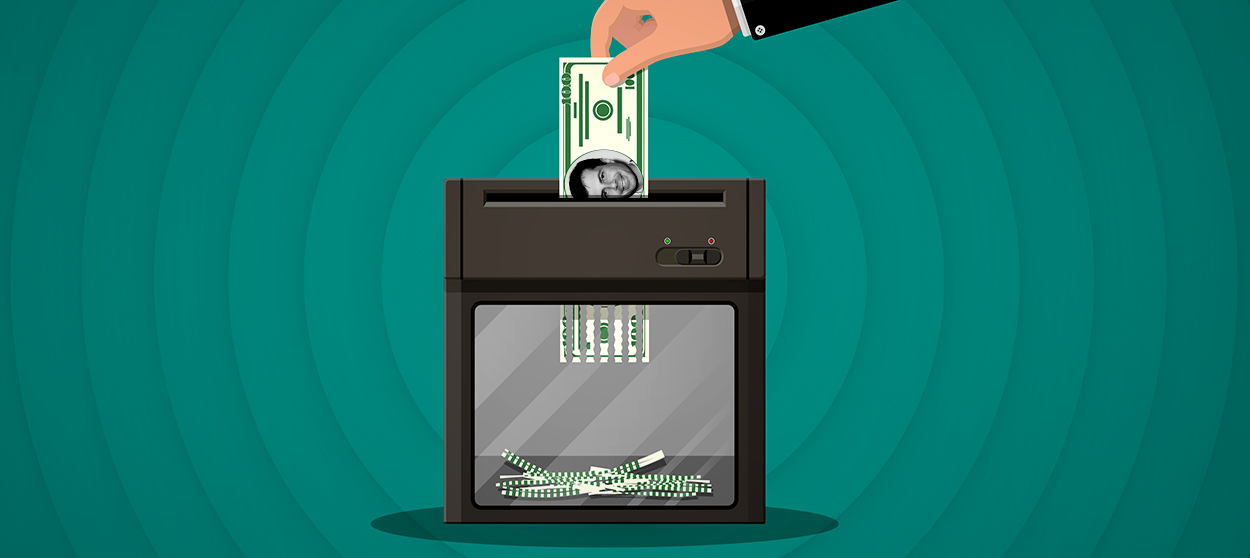The total irrelevance of campaign fundraising
It doesn't matter anymore. And that's a good thing.


A free daily email with the biggest news stories of the day – and the best features from TheWeek.com
You are now subscribed
Your newsletter sign-up was successful
So you want to be president of the United States. You're insane. But granted that you have this ambition, what do you need to do?
Lots of things, the most important of which is to get people to talk about you on television, the internet, and even in real life. But one thing you probably don't have to obsess over is "raising" millions and millions of dollars from would-be corporate influencers and credulous individual donors.
How did Donald Trump manage to capture the Republican presidential nomination in 2016? Was it because he raked in more money than his opponents combined? No. Trump spent less than any of the other competitive candidates in the early months of the GOP primary cycle. By the time Ben Carson dropped out of the race in March, he had spent twice as much money as Trump. The only Republican who used less cash than our current president and actually managed to win a primary was John Kasich, and he survived far longer than, say, Jeb Bush, who blew through $130 million despite never finishing better than fourth in any nominating contest. Trump won not because he had spent around $35 million of his own money by the time his opponents dropped out, but because the media gave him at least $5 billion of free advertising.
The Week
Escape your echo chamber. Get the facts behind the news, plus analysis from multiple perspectives.

Sign up for The Week's Free Newsletters
From our morning news briefing to a weekly Good News Newsletter, get the best of The Week delivered directly to your inbox.
From our morning news briefing to a weekly Good News Newsletter, get the best of The Week delivered directly to your inbox.
It has never been easier to raise money as a political candidate than it is in 2019. It has also never been less important. This trend has been clear for a long time. Ron Paul set records for online fundraising in 2007. It didn't matter, though, in large part because almost no one on cable news was willing to talk about him. (I cannot be the only one who remembers Wolf Blitzer on CNN cautioning viewers against accepting the reality of Paul's fundraising totals, as if money from this place called the internet were only pretend.) The Texas libertarian's campaign went nowhere. Now anyone can pay for a list and replicate Paul's success by getting $20 from millions of enthusiasts with an email address. My inbox is filled with thousands of messages from obscure House candidates soliciting funds.
This is why I roll my eyes when I read news stories about how Pete Buttigieg's ability to convince people to give him $7 million means that he is a "contender" in 2020. The mayor of South Bend, Indiana, (population 101,168) is not going to be the next president or the nominee of the Democratic party. He's probably not even going to place better than Jeb did in the New Hampshire primary, assuming he stays in the race that long.
Bernie Sanders, by contrast, has a halfway decent chance at winning the nomination. This is not because he is currently raising more money than anyone else in this crowded Democratic field, but because he is now a universally recognizable politician, a compelling speaker, and someone with a unique and engaging platform that differs in significant ways from those of nearly all of his opponents. He is already winning what I like to think of as the attention primary. It's still his to lose.
For my part I find it hard to complain about the growing unimportance of fundraising in politics. I cannot think of a worse thing to do with U.S. legal tender, including using it as toilet paper, than donating it to a candidate or a political action committee. Letting journalists on Twitter decide what politicians we should take seriously might not be a better system than letting people buy their parties' nominations, but at least it's different.
A free daily email with the biggest news stories of the day – and the best features from TheWeek.com
The next step will be, of course, letting media outlets pay for all of our election expenses. Want to have a debate featuring all 47 Democratic presidential candidates in Las Vegas or Gary, Indiana, so that you and your colleagues can spend the next three days talking, debating, and ascribing anagogic significance to every tedious frame? Pay for their plane — or better yet, bus — tickets and hotel rooms. Make them stay two to a room, like kids on a school trip. If they want better travel options or more luxurious accommodations, they can shell out for it with the money they've earned from the memoirs and manifestos for which they received gigantic advances.
No normal well-adjusted American wants presidential elections to be 24/7, 365-days-a-year phenomena. Many of us would just as soon have a one-day national primary a month or two before the general election. For the foreseeable future, we're not going to have any say in the matter. But at least we no longer have to pay for it.
Matthew Walther is a national correspondent at The Week. His work has also appeared in First Things, The Spectator of London, The Catholic Herald, National Review, and other publications. He is currently writing a biography of the Rev. Montague Summers. He is also a Robert Novak Journalism Fellow.
